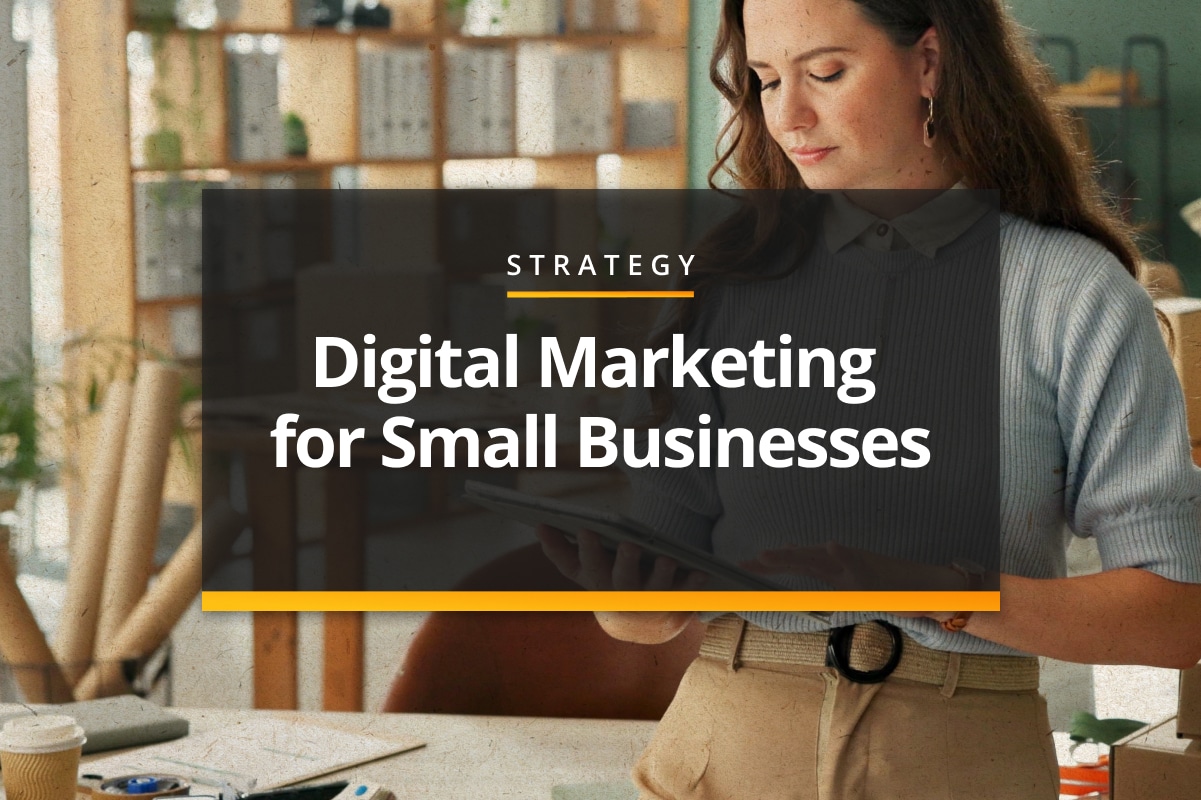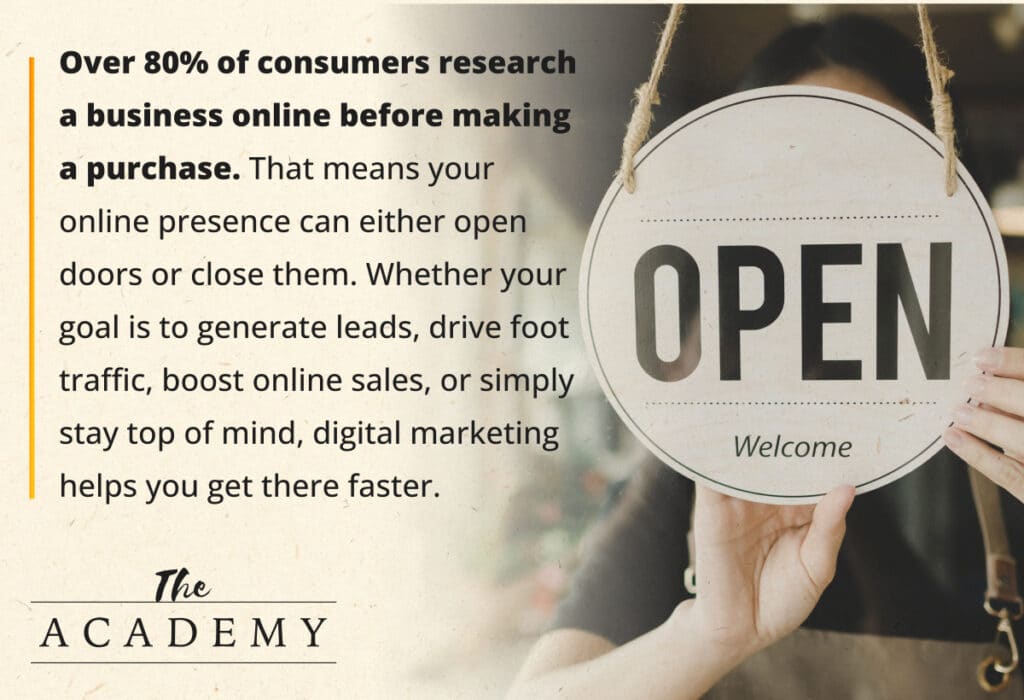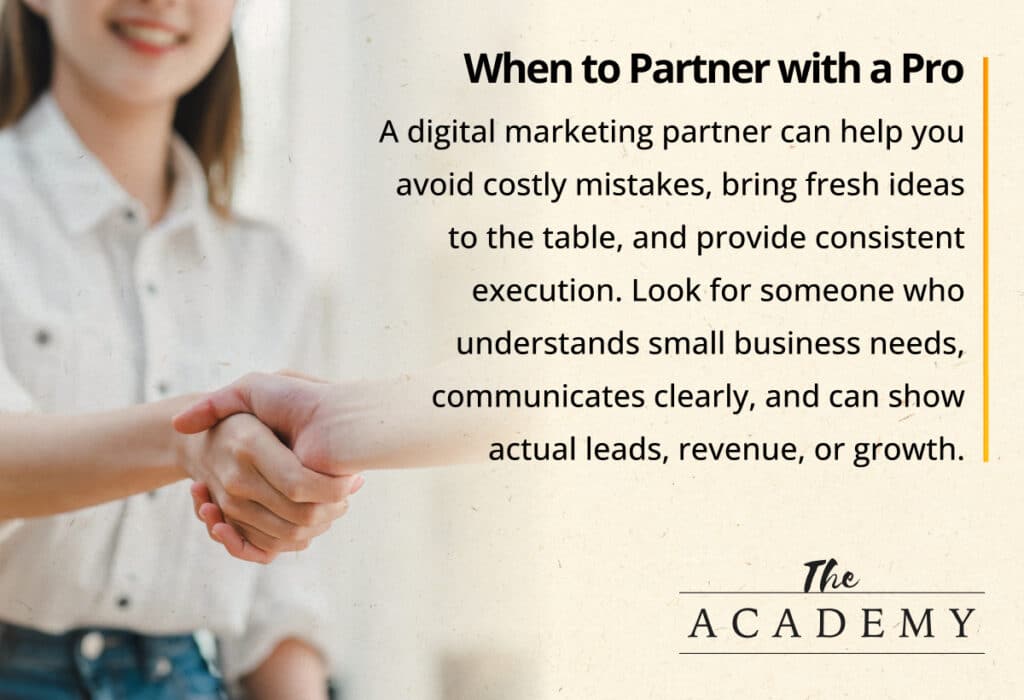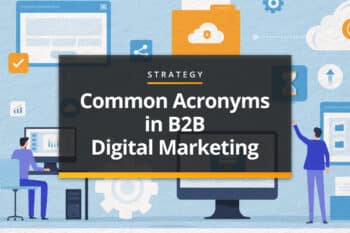
Running a small business is no small feat. You’re likely wearing multiple hats, juggling limited resources, and doing your best to stand out in a crowded market. That’s where digital marketing comes in. It offers a way to level the playing field, allowing small businesses to compete with larger players, reach the right audiences, and grow sustainably, often without a massive budget.
If you’re wondering where to start or how to make the most of your efforts, this guide is for you.
Why Digital Marketing Matters for Small Businesses

Digital marketing isn’t just a buzzword, it’s a crucial tool for growth. Over 80% of consumers research a business online before making a purchase. That means your online presence can either open doors or close them.
The beauty of digital marketing is that it’s cost-effective, measurable, and adaptable. Unlike traditional advertising, you can track every dollar spent and tweak your efforts in real time based on what’s working.
Whether your goal is to generate leads, drive foot traffic, boost online sales, or simply stay top of mind, digital marketing helps you get there faster.
Key Digital Marketing Channels to Focus On
You don’t need to do everything at once. Instead, focus on a few core channels that deliver the most value for small businesses.
1. Search Engine Optimization (SEO)
If your website isn’t showing up when people search for your services, you’re missing out. SEO helps improve your visibility in search engines like Google. Start by optimizing your website’s content around the keywords your customers are searching for. Even basic improvements to page titles, headings, and local listings can make a big difference.
2. Google Business Profile
This is a must for any local business. Claiming and optimizing your Google Business Profile allows you to appear in local search results and Google Maps. Include accurate hours, services, photos, and regularly ask for customer reviews to boost your credibility and ranking.
3. Social Media
Pick one or two platforms where your audience spends time. Facebook, Instagram, and LinkedIn are great starting points depending on your industry. Use social media to showcase your work, share customer stories, promote special offers, and engage with your community. Consistency matters more than perfection.
4. Email Marketing
Email is still one of the highest ROI digital channels. It’s personal, direct, and a great way to keep your audience informed and engaged. Start collecting emails through your website or in-store, and send regular newsletters, promotions, or helpful tips.
5. Paid Advertising (PPC)
Platforms like Google Ads and Meta (Facebook/Instagram) Ads can drive targeted traffic fast. With the right setup, even small ad budgets can lead to real results. The key is targeting the right audience and having a clear call to action — like scheduling a consultation or visiting your website.
Tips to Get Started Without Getting Overwhelmed
Getting into digital marketing doesn’t have to be intimidating. Here are a few tips to help you start strong:
- Define your goals. Are you trying to generate leads, boost awareness, or increase online sales? Your goals should guide your strategy. Set smart digital marketing goals.
- Know your audience. Understand who your ideal customers are, what they care about, and where they spend time online. Learn more about personalizing your marketing approach.
- Start small. Focus on one or two channels to begin with, then expand as you gain confidence and see results.
- Use affordable tools. Platforms like HubSpot (for lead tracking), Canva (for design), Mailchimp (for email), GA4 (for tracking user interactions on your website) and Buffer (for social media scheduling) can help you stay consistent without hiring a full team.
When It Makes Sense to Partner with a Pro

At a certain point, you may want to hand off some of the heavy lifting. A digital marketing partner can help you avoid costly mistakes, bring fresh ideas to the table, and provide consistent execution.
If you decide to work with an agency or freelancer, look for someone who understands small business needs, communicates clearly, and can show results, not just impressions and clicks, but actual leads, revenue, or growth.
Final Thoughts
Digital marketing isn’t a magic bullet, but it is a powerful toolkit for small business success. Whether you’re brand new or looking to fine-tune your strategy, the key is to take action, even small steps can create momentum.
Need help figuring out where to start or want a second opinion on your current strategy? We’d love to chat.
Most Popular Articles

Seeing Favicons in Your Google Search Results? Here’s Why…
Have you noticed anything different in your Google Search results lately? Google added tiny favicon icons to its organic search results in January. It was…

Business Growth and Digital Marketing News & Tips 11-17-24
Are you encouraging and rewarding innovation? Lee Cockerell is the former Executive Vice President of Operations at Walt Disney World. A lover of traditional red…

Business Growth and Digital Marketing News & Tips 11-27-24
A culture of gratitude "Feeling gratitude and not expressing it is like wrapping a present and not giving it." – William Arthur Ward Beyond being…








